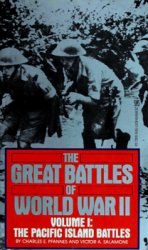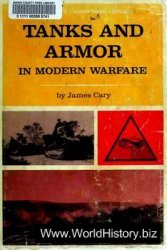This ancient kingdom in the northeast corner of the Greek peninsula that established control over Greece in the fourth century b. c.e. and conquered an Asian empire extending from Egypt to India.
Date: 700-146 b. c.e.
Category: Cities and civilizations Locale: Greek peninsula
Background The origins and language of the Macedonian people are obscure. The ruling dynasty claimed to be Greek, professing descent from mythical Heracles through the royal house of Argos. Scholars heatedly debate whether Macedonians were distant relatives of the Greek people, speaking a distinctive dialect, or were of unrelated stock.
History The first king of Macedonia, Perdiccas I (c. 650 b. c.e.), led a tribe of shepherds calling themselves Macedonians from the mountainous territory around Pieria and Olympus to the fertile plain below. Little is known concerning Macedonia’s first five kings. The sixth king, Amyntas I (d. c. 498 b. c.e.), resisted attempts by the expanding Persian Empire to control Macedonia. His son, Alexander I (r. c. 497-c. 454 b. c.e.), was forced to submit and become a Persian vassal; however, he secretly aided the Greek defense against Persian forces.
Macedonia in the fifth century b. c.e. was weak and unable to oppose the major Greek powers effectively. When Athens expanded its empire to the northern coast of the Aegean, Macedonia offered little resistance until the reign of Perdiccas II (r. c. 450-c. 413 b. c.e.). Perdiccas alternated between inciting rebellions in Athenian client cities and allying with Athens against his own Balkan enemies. King Archelaus (r. c. 413-399 b. c.e.) yearned for Greek approval. Although he invited leading Greek artists to his capital Pella—where the playwright Euripides spent his last years—and aided Athens after its defeat in the Peloponnesian War (431-404 b. c.e.), Athenians considered Archelaus a shifty, untrustworthy barbarian.
Under Philip II (r. 359-336 b. c.e.), Macedonia became the greatest power in the Greek peninsula. He reorganized his army, providing new weapons and drilling his men in the use of the phalanx formation. No army could stand against Philip; he conquered his Balkan neighbors as far north as the Danube River and established control of the Greek city-states by defeating the combined might of Athens and Thebes at the Battle of Chae-ronea in 338 b. c.e. Philip’s power and wealth attracted historians, philosophers, writers, and artists to his capital, and Pella rivaled Athens as a center of Greek culture.
After Philip’s assassination, his son Alexander the Great (r. 336-323 b. c.e.) carried out the invasion of Asia that Philip had planned. The Macedonian army thoroughly defeated the Persian forces, and Alexander conquered an empire stretching from the Libyan Desert in the west to the banks of the Indus River in the east. After Alexander’s death, his generals divided the empire into rival Hellenistic kingdoms and contended with each other for supremacy.
Although frequently challenged by federations and leagues of Greek city-states, Macedonia remained the dominant power in Greece. In 280 and 279 b. c.e., successive invasions by large numbers of Gauls nearly destroyed the Macedonian army and devastated the countryside. Bringing an army from Asia Minor in 277 b. c.e., Antigonus II Gonatas defeated a band of Gauls. He became king and founded the Antigonid Dynasty, which ruled until the Roman conquest of Macedonia.
Macedonian kings opposed Roman expansion into the Balkans and supported Carthage during the Punic Wars (264-146 b. c.e.), thereby winning the enmity of Rome. After defeating the Macedonian army in 167 b. c.e., Rome abolished the monarchy and partitioned the country into four client republics. In 146 b. c.e., Rome turned Macedonia into a Roman province.
War and Weapons Macedonia was at war, or under the threat of war, throughout its history. All kings maintained a standing army, and the country lived on an almost permanent war footing. Philip II armed his men with 16-foot (5-meter) pikes, counterweighted at their butt ends so that they balanced with 12 feet (4 meters) of their length extending in front of the weapons’ holders. Philip drilled his soldiers to charge in phalanx formation—as an eight-man-deep rectangle or as a sixteen-man-deep wedge. Each soldier held his pike with both hands and thrust with his full weight forward. In this configuration, the leading pikemen were protected by four protruding pike points and had a reach of 12 feet (4 meters) with their own pikes. Other armies carried spears of 7 feet (2 meters) or less; therefore, Philip’s phalanxes struck opponents before they could employ their own weapons. Combined with cavalry, whose mobility both Philip and Alexander the Great wielded to great effect, the Macedonian infantry was nearly invincible until it faced the Roman legion.
Government and Law The king of Macedonia held absolute power, limited only by the strength of tradition. He served as the country’s religious leader, sacrificing daily to the appropriate deities and presiding over numerous festivals and ceremonies. There was no fixed rule of succession; the Macedonians who made up the royal infantry and cavalry met as an assembly to chose the next king. However, from Perdiccas I (c. 650) to the death of Alexander the Great’s son, Alexander IV, in about 310 b. c.e., only male descendants of the Argead Dynasty—whose claimed descent from Zeus through Heracles gave them a semisacred aura—were selected to rule. The king, as supreme commander of the armed forces, led his forces into battle. He owned all mineral deposits and timber in the kingdom as well as all conquered land, which he disposed of as he saw fit. Royal revenues, including land taxes and harbor dues, were huge, but equally large were the expenses of arming and maintaining the state’s land and naval forces, as well as the costs of its royal court. To citizens of Greek city-states, the all-powerful Macedonian kings seemed barbaric relics of archaic times, justifying the Greeks’ contempt for Macedonia.
Religion and Ritual Macedonians shared the common religious features of the Greek world and worshiped its twelve Olympic gods. The cult of Zeus and places of devotion such as Mount Olympus were especially popular, and Heracles, the reputed ancestor of the royal family, received much admiration. Mystery cults, which promised life after death, were also widespread. By the fourth century c. e., however, most Macedonians had converted to Christianity.
Economics The major occupations of the Macedonian people were herding, farming, and logging. The country was self-sufficient in foodstuffs and in good years might even export some food. The major export, however, was lumber. Logs that could be shaped into ship’s timbers were highly valued; after disastrous naval battles, Greek city-states turned to Macedonia for timber to rebuild their fleets. The expansion of Macedonia brought gold and silver mines under the control of the kings, who issued coinage and used profits to support the army and court.
Agriculture and Animal Husbandry Early Macedonians were originally shepherds, pasturing their sheep and goats in the high meadows surrounding Mount Olympus and the Pierian range during the summer and moving to lower ground during the winter. After they expanded into the lowlands and coastal areas, Macedonians raised grains and other foodstuffs.
Settlements and Social Structure By the fourth century b. c.e., the majority of the population were peasant farmers living in small villages near their farmland. Other than the capital and a few ports, cities were modest settlements serving an agricultural and herding hinterland. Macedonian cities had local governmental structures modeled after those of Greece. Unlike the sovereign assemblies or oligarchies of Greece, however, all local authorities were subject to the overriding authority of the king. Also, unlike Greek cities whose economies depended on slave labor, workers in Macedonian cities were free subjects of the king. The largely peasant population was a rich source of recruits for the Macedonian infantry. Wealthier residents who could afford to own horses provided cavalry for the army.
Language and Literature Literate Macedonians admired Greek culture and were familiar with Greek texts. They revered the Homeric epics—the warrior ethos of the Iliad (c. 750 b. c.e.; English translation, 1611) particularly appealed to a warrior nation—and they were aware of current Athenian playwrights and poets. The language Macedonians spoke in the seventh century b. c.e. seems beyond recovery; it could have been a unique dialect of Greek or a Balkan language related to Illyrian or Thracian. By the time of Philip II and Alexander, however, the spoken language was the common Greek tongue, and Alexander and his successors spread the Greek language and literature throughout their Asian and African territories.
Current Views Questions concerning the ethnic origins of the Macedonians have occasioned furious debates. Greek nationalists and most Greek scholars claim, often passionately, that Macedonia was always Greek. Slavic authors, living in the Republic of Macedonia (formerly part of Yugoslavia), vigorously insist that ancient Macedonians were never Greek; extremists argue they were actually Slavs. More neutral scholars are divided; many believe Macedonians were Greek, but others think the evidence is too ambiguous to permit certainty.
Further Reading
Borza, Eugene M. In the Shadow of Olympus: The Emergence ofMacedon.
Princeton, N. J.: Princeton University Press, 1990.
Errington, R. Malcolm. A History of Macedonia. Berkeley: University of California Press, 1990.
Hammond, Nicholas G. L. The Miracle That Was Macedonia. New York: St. Martin’s Press, 1991.
_______. Philip ofMacedon. Baltimore: Johns Hopkins University Press,
1994.
Milton Berman
See also: Alexander the Great; Alexander the Great’s Empire; Antigonid Dynasty; Antipater; Argead Dynasty; Cassander; Chaeronea, Battle of; Cynoscephalae, Battle of; Demetrius Poliorcetes; Diadochi, Wars of the; Gaugamela, Battle of; Granicus, Battle of; Hellenistic Greece; Language and Dialects; Olympias; Phalanx; Philip II of Macedonia; Philip V; Ptolemaic Dynasty; Ptolemaic Egypt; Ptolemy Soter; Religion and Ritual; Seleucid Dynasty; Seleucus I Nicator; Warfare Before Alexander; Warfare Following Alexander; Weapons.




 World History
World History









